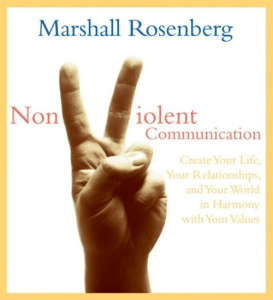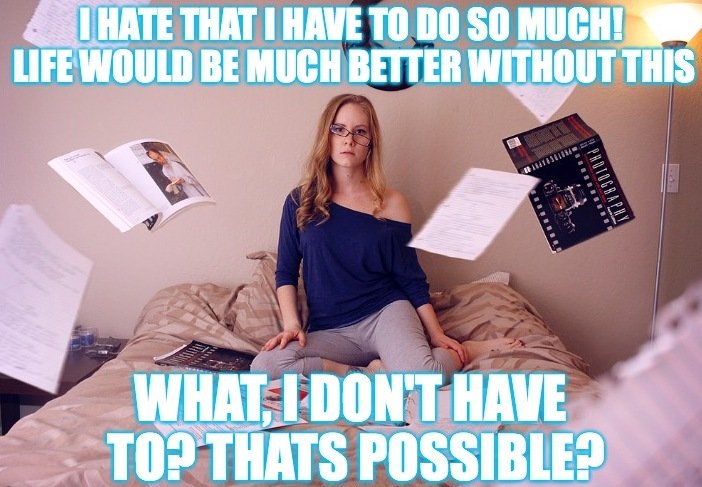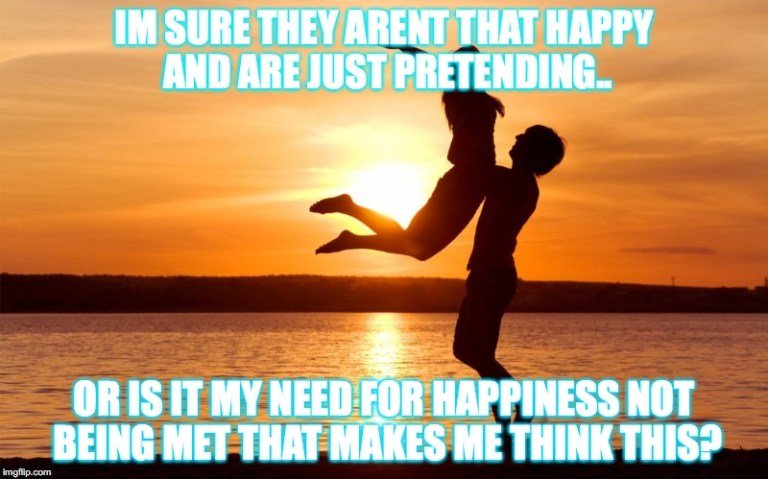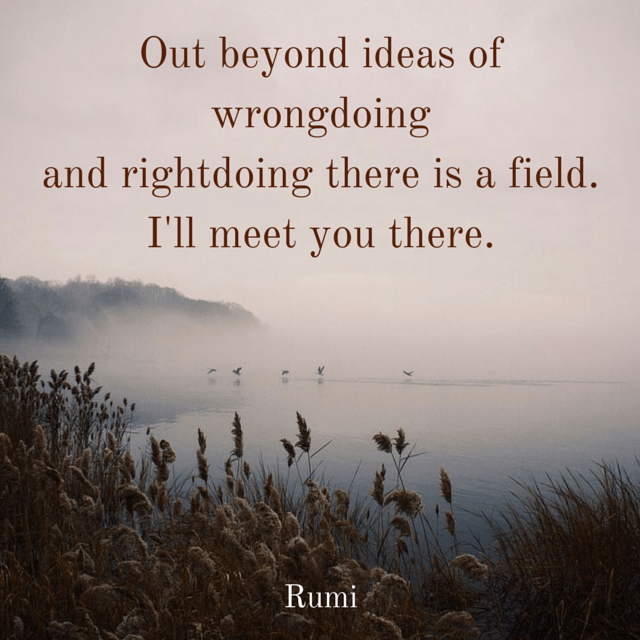Here is a review of a course I have loved for some time now. I was blown away the first time I participated in the lessons and used them in the real world. There are other resources out there similar to this kind of work, I find this to be one of the best. This short post can not do this whole program justice, there is much much more inside of the course. I hope this inspires people to get in touch with real communication. It will be well worth the small investment.
Nonviolent Communication Audio Training Course by Marshall Rosenberg

 Marshall Rosenburg loved this quote by the great Indian philosopher Jiddu Krishnamurti, “The highest form of human intelligence is the ability to observe without evaluating.” I love this as well, and if you don’t yet, you may too love it after reading further. This is one thing I struggle with daily, getting better by the day, working on it daily, I always will be.
Why This Course…
A number of years ago while attending one of my holistic lifestyle coaching courses I came across the book by Marshall Rosenburg, Nonviolent Communication: A Language of Life. After reading that book I noticed that he had put out a number of audio resources over the years, so I obtained a copy of all of them. This audio course is the grand daddy of all of the products that I had picked up. It is 9 hours long and has a workbook with it as well as some training cards. I loved the course, I have listened to it several times over the years and every time I listen I am reminded of things or discover new things to work on when communicating with others, and myself. Communication is one of todays most dire (extremely urgent) topics that desperately needs improvement. Even more importantly, of the communication that is out there with the majority of us, there seems to be a whole lot of violence and conditional terms tied in with it. This method of nonviolent communication is one of the most valued programs I have yet to come across. Lets face it, most of us are not very good communicators at all. As always, there is good news though, there are programs like this one that can help us build up the skills we lack and make us become highly effective in our communication with others and ourselves. How much more peaceful would this world be with solid communication that comes from places of unconditional observation and doing it all without jumping to evaluations and judgements? It’s not easy to jump into this style of communicating at first, especially with different emotions present in different circumstances. It is doable, everyone wins in the end. Two huge points for us to look at from the program are the following… Everyone has a choice, and none of us “have to” do anything. And, all judgments that we or someone else may have, come from un-met needs of the judger. Let’s look more into both.
Does Anyone “Have To” Do Anything?
Marshall Rosenburg loved this quote by the great Indian philosopher Jiddu Krishnamurti, “The highest form of human intelligence is the ability to observe without evaluating.” I love this as well, and if you don’t yet, you may too love it after reading further. This is one thing I struggle with daily, getting better by the day, working on it daily, I always will be.
Why This Course…
A number of years ago while attending one of my holistic lifestyle coaching courses I came across the book by Marshall Rosenburg, Nonviolent Communication: A Language of Life. After reading that book I noticed that he had put out a number of audio resources over the years, so I obtained a copy of all of them. This audio course is the grand daddy of all of the products that I had picked up. It is 9 hours long and has a workbook with it as well as some training cards. I loved the course, I have listened to it several times over the years and every time I listen I am reminded of things or discover new things to work on when communicating with others, and myself. Communication is one of todays most dire (extremely urgent) topics that desperately needs improvement. Even more importantly, of the communication that is out there with the majority of us, there seems to be a whole lot of violence and conditional terms tied in with it. This method of nonviolent communication is one of the most valued programs I have yet to come across. Lets face it, most of us are not very good communicators at all. As always, there is good news though, there are programs like this one that can help us build up the skills we lack and make us become highly effective in our communication with others and ourselves. How much more peaceful would this world be with solid communication that comes from places of unconditional observation and doing it all without jumping to evaluations and judgements? It’s not easy to jump into this style of communicating at first, especially with different emotions present in different circumstances. It is doable, everyone wins in the end. Two huge points for us to look at from the program are the following… Everyone has a choice, and none of us “have to” do anything. And, all judgments that we or someone else may have, come from un-met needs of the judger. Let’s look more into both.
Does Anyone “Have To” Do Anything?
 I have to go to school. I have to earn money. I have to cook for the family. I have to get good grades. I have to workout. I have to date the right kind of people. I have to go to church. I have to pay taxes. I have to get married. I have to vote. I have to put on a false identity or else no one will like me. I have to be forceful or else no one will listen to me. I have to donate to charity or else I am not considered a good person. These are only a few of the “have to’s” that most of us carry with us daily. It seems almost impossible to believe that it’s not true that we have to do any/all of those things. The truth is, we don’t. Are there consequences to not doing some things, always, do we have responsibilities as people, yes we do. But coming from a place of having to, a place of demand is not a nonviolent way of going through life. We choose to do every thing that we do, it is not possible to be made to do anything. The author has a really good and simple exercise in the program to help us better manage our feelings about this, in three steps…1) “What do you do in your life that you don’t experience as playful? List on a piece of paper all those things that you tell yourself you have to do, any activity you dread but do anyway because you perceive yourself to have no choice.” Example: I have to stay sober or else my health will decline. 2) “After completing the list, clearly acknowledge to yourself that you are doing these things because you choose to do them, not because you have to. Insert the words “I choose to . . . ” in front of each item you listed.” Example: I choose to stay sober or else my health will decline. 3) “After having acknowledged that you chose to do a particular activity, get in touch with the intention behind the choice by completing the statement, “I choose to ____ because I want _____.” Example: I choose to stay sober because I want vitality in my life! Of course the example here is someone choosing to stay sober and dreading it because they want their drug of choice. Instead of a choice coming from a place of force and demand it can come from a place of gratitude and acceptance. With every choice that we make we need to be conscious of what the choice serves. This a great exercise to go through every few months to see how many things you are doing that you do not want to do and why you are doing them. You may end up quitting some things after you go through the exercise and come to realization that most “have to” things are not that at all.
Judgements, Criticism, Blaming, and Unmet Needs
The process of the nonviolent communication way is as follows..
I have to go to school. I have to earn money. I have to cook for the family. I have to get good grades. I have to workout. I have to date the right kind of people. I have to go to church. I have to pay taxes. I have to get married. I have to vote. I have to put on a false identity or else no one will like me. I have to be forceful or else no one will listen to me. I have to donate to charity or else I am not considered a good person. These are only a few of the “have to’s” that most of us carry with us daily. It seems almost impossible to believe that it’s not true that we have to do any/all of those things. The truth is, we don’t. Are there consequences to not doing some things, always, do we have responsibilities as people, yes we do. But coming from a place of having to, a place of demand is not a nonviolent way of going through life. We choose to do every thing that we do, it is not possible to be made to do anything. The author has a really good and simple exercise in the program to help us better manage our feelings about this, in three steps…1) “What do you do in your life that you don’t experience as playful? List on a piece of paper all those things that you tell yourself you have to do, any activity you dread but do anyway because you perceive yourself to have no choice.” Example: I have to stay sober or else my health will decline. 2) “After completing the list, clearly acknowledge to yourself that you are doing these things because you choose to do them, not because you have to. Insert the words “I choose to . . . ” in front of each item you listed.” Example: I choose to stay sober or else my health will decline. 3) “After having acknowledged that you chose to do a particular activity, get in touch with the intention behind the choice by completing the statement, “I choose to ____ because I want _____.” Example: I choose to stay sober because I want vitality in my life! Of course the example here is someone choosing to stay sober and dreading it because they want their drug of choice. Instead of a choice coming from a place of force and demand it can come from a place of gratitude and acceptance. With every choice that we make we need to be conscious of what the choice serves. This a great exercise to go through every few months to see how many things you are doing that you do not want to do and why you are doing them. You may end up quitting some things after you go through the exercise and come to realization that most “have to” things are not that at all.
Judgements, Criticism, Blaming, and Unmet Needs
The process of the nonviolent communication way is as follows..
1) The concrete actions we are observing that are affecting our well-being
2) How we feel in relation to what we are observing
3) The needs, values, desires, etc. that are creating our feelings
4) The concrete actions we request in order to enrich our lives
The essence of NVC (Nonviolent communication) is to be found in our consciousness of these four components, not in the actual words that are exchanged.
Rosenburg states in the program that conversations are basically pointless and may as well be skipped altogether when there is no connection with feelings and needs of the people participating in the conversation, “vitality drains out of conversations when we lose connection with the feelings and needs generating a speakers words”. How many conversations have we had like that? Probably more than we were/are consciously aware of at the time. That 4 step process isn’t preached like gospel that must be followed, its a general idea of the things that make conversations worth it to participate in.
 A fairly common and great example of someones needs not being met that spark a judgement/criticism is pictured above. It’s a single person looking on that has an un-met need for a partner and or happiness in their life who tends to judge every couple that appears to be happy. Why do they get to be happy and not me, why cant I have that. He’s not deserving of her, she’s not cute enough for him, etc. Here are a basic list of the 9 needs that everyone usually needs at some point in time in their life…
A fairly common and great example of someones needs not being met that spark a judgement/criticism is pictured above. It’s a single person looking on that has an un-met need for a partner and or happiness in their life who tends to judge every couple that appears to be happy. Why do they get to be happy and not me, why cant I have that. He’s not deserving of her, she’s not cute enough for him, etc. Here are a basic list of the 9 needs that everyone usually needs at some point in time in their life…
- Sustenance (Food, air, water, shelter)
- Safety
- Love
- Empathy
- Rest, Recreation, Play
- Community
- Creativity
- Autonomy
- Meaning, Purpose
When these needs are being met we are at peace for the most part. Our communication is much smoother. We tend to not judge as easily. We tend to not react violently (physically or verbally). This is the whole point of Nonviolent communication.
Forcing Our Way
Forcing our way to get what we want is a sure ticket to not accomplishing very much, and if anything is accomplished it’s usually short lived or ends with bad results. I once believed that it was possible to force things along, I was proven otherwise each and every time. I couldn’t figure it out then, now I have a much better understanding as to why this doesn’t work. Marshall Rosenburg says in the program “if you’re going to use nonviolent communication to try and get people only to do what you want, don’t bother, just go to a dog training facility and watch how things are done there instead”. When using nonviolent communication it is important to keep everyones needs in mind, and to see that they are met. Being empathetic and compassionate about the situation and being fully present will yield much better results for all parties involved. Forcing something with a demanding connotation threatens one of our 9 needs that everyone needs, the need that is most threatened by this behavior is our need for autonomy.
The English Oxford Dictionary defines the word autonomy as follows: Autonomy: Freedom from external control or influence; independence.
When our autonomy is threatened it sets the stage for low level communication. Most of us do not like to be slaves to authority by nature, although we may put up with it. We all internally know that no one can make us do anything, if we are in tune with ourselves in the least we can feel the uneasy feeling of following orders that we do not agree with, this is our primitive need of autonomy being threatened. A great example of how using NVC instead of force can work to our advantage is to use it with children. “my own children taught me that, from the time they were two years old on they taught me I couldn’t make them do anything. If I were to say please put your toys away its time for dinner they might say “NO” and I would say “don’t you hear what daddy said” and they would say “NO”. They taught me that I couldn’t make them do anything, all I could do was make them wish they had! Then if I would do that they taught me another lesson that if I made them wish they had, they would make me wish that I hadn’t made them wish they had. In other words, violence creates violence. Punishment creates counter violence.” Children are such a good practice point for this communication, especially if they are your own. I do not have my own children yet but I spent many years around my nephews while they were growing up. I never yelled at them a single time and used NVC techniques every time they had a bad attitude. It works very well!
A Few Experiences of Mine Using NVC
Theres two main areas of my life that practicing Nonviolent communication has helped me greatly. Here they are…
1) Being quick to judge! I still go through times when I jump to conclusions so quickly and judge people at first glance, or judge by a ten second conversation. Is it easy to assume how most people are these days? Yes, it is because so many people are trapped in the same ways, but this doesn’t mean that I am right or that I should be thinking this way. When I do get to heavily involved with casting judgements and evaluating I start to tell myself that I am being this way, and that this is not a high form of intelligence. I then quickly shift into thinking about all the possibilities about the person I was judging and leave it alone. If I end up being correct down the road then lucky me, not that it’s about being correct though at all. Sometimes I am quite surprised at what I thought and what reality ended up being. This is basically a daily occurrence with me. I will also think of what needs of mine aren’t being met, which makes me casts certain judgment on others. It then becomes a moment of inner work with myself and I become thankful for the situation I found myself in. It all adds to more self discovery in myself. Quite twisted stuff, I know…
2) Becoming angry and working through it! I have always been a fairly calm person even under the most stressful times. Being loud and angry is not who I am, never has been. However, there are times where I feel offended or get annoyed by something, which is a form of anger so I’ll count those. I formerly would fire back quickly at people or go completely silent to them when something ticked me off a bit. I would think, wow how could they say or do something like that to me. I heard Rosenberg mention something on the program years back that has stuck with me ever since and here it is. “We are never angry because of what others say or do. The cause of anger lies in our thinking-in thoughts of blame and judgment.” When I fully processed those lines and got passed the “yeah right” thoughts it changed everything. Now when people do things to try and make me angry or things that would’ve unintentionally made me angry in the past I laugh about it or brush it off quite easily. I know that I have all the power when it comes to how I feel about it. It’s a great place to be. It makes me wonder how other people actually hold grudges and annoyances with others for so long. Then I remember that everyone is working at their own pace and I understand.
NVC is a grand blessing to me. And can be for anyone who chooses to use it, or some form of it. We are trapped in a world of ideas about rightness and wrongness, a world of judgments. When we think and speak this way it separates us, alienates us. Thinking and speaking this way and labeling things as good, bad, normal, abnormal, responsible, smart, dumb, etc, it classifies everything and everyone and makes communicating much less enjoyable. That then makes life less enjoyable. Everyone having the option of choice and the ability to work towards shifting from that way of thinking and communicating to a new form, the nonviolent way, is a grand gift. The Sufi poet Rumi once wrote a small and powerful line that has major meaning, here it is…
 Good one to meditate on!
Good one to meditate on!
Awareness and vitality,
Barbero
Resources





Good content. Happy Friday.
Posted using Partiko Android
Glad you liked it! Thank you. Happy Friday
congratulation your beautiful post is in trending...
Thanks. That's the goal
I hope you Stay with Us...
Congratulations @barberocaico! You have completed the following achievement on the Steem blockchain and have been rewarded with new badge(s) :
Click on the badge to view your Board of Honor.
If you no longer want to receive notifications, reply to this comment with the word
STOPCongratulations @barberocaico! You have completed the following achievement on the Steem blockchain and have been rewarded with new badge(s) :
Click on the badge to view your Board of Honor.
If you no longer want to receive notifications, reply to this comment with the word
STOP